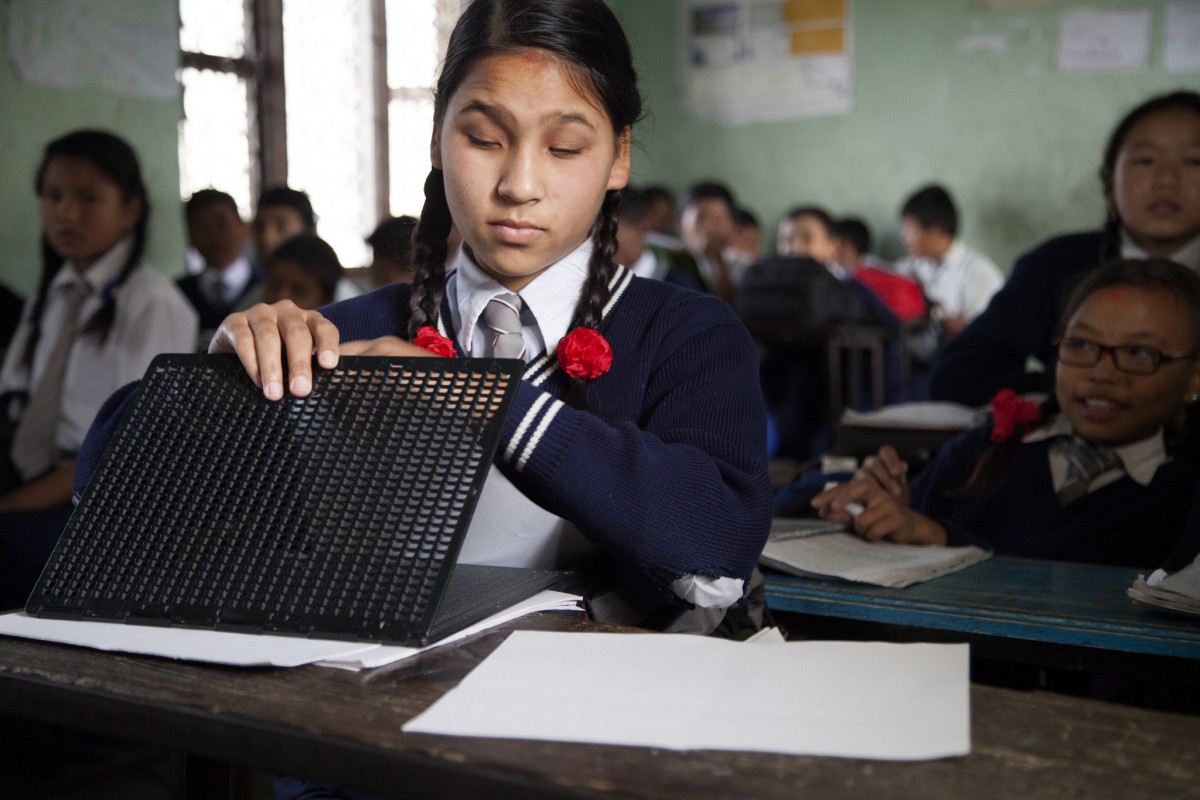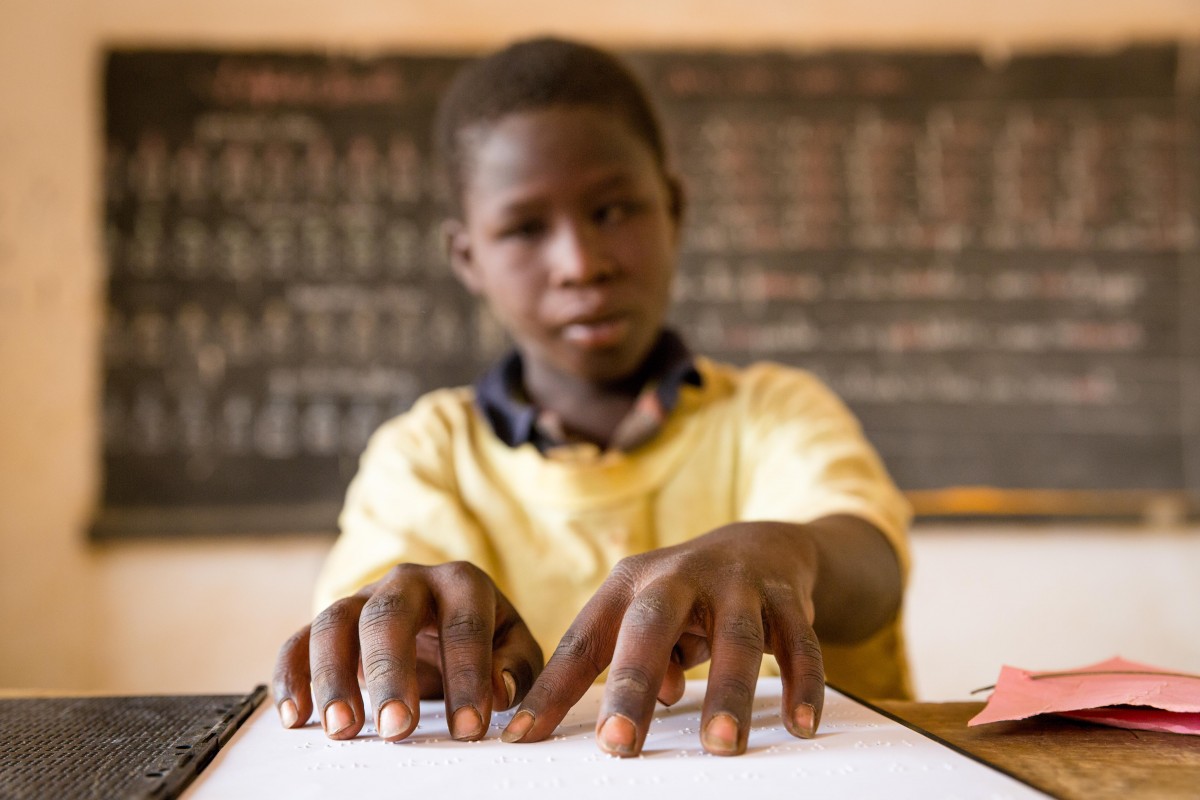Chris Woodgates, member of our Brighton RESULTS group, discusses the Global Partnership for Education and the importance of educating children with disabilities. Chris is based in Brighton and is currently studying for a BA in Anthropology at the University of Sussex. This blog was first posted on the RESULTS Brighton blog.
RESULTS campaigners this month have been focussed on the upcoming Global Partnership for Education (GPE) funding replenishment set to happen at the start of February in Dakar. The GPE is a vital multilateral partnership that provides funds to developing countries while also encouraging governments to increase their education spending. It plays a crucial role in ensuring that children all over the globe are able to go to school and it is critical to the success of goal number 4 of the UN’s Sustainable Development Goals (SDGs): to ensure inclusive and quality education for all and promote lifelong learning.
It is estimated that around 264 million children worldwide are out of school, and many children who are in school but who live in low to middle-income countries do not attain more than a basic primary education. This has a devastating effect, not just on the lives of the individuals who lack the basic means to escape poverty, but because an uneducated population is a harmful impediment to social and economic progress as well.
We know that education is key to eradicating poverty worldwide— 420 million people would be lifted out of poverty if primary and secondary education could be achieved universally by adulthood. Education is essential for creating fairer, more equitable societies, where children are provided with the skills they need to become thriving and productive citizens. Without an effective education system economies cannot grow, healthcare systems are unable to provide adequate treatment, and the likelihood of violent conflict increases significantly. This report conducted by the Education Commission outlines why it is so important that investment into education is at the heart of any development strategy.
The GPE replenishment is an opportunity for governments to restate their commitment to fulfilling the SDGs and has the potential to change the lives of millions of children. This is why, as RESULTS campaigners, we have been calling on the UK government to pledge at least £380 million to the replenishment. This figure has been calculated to ensure that all of the GPE’s targets can be met.

Photo credit: GPE/Nayan Tara Gurung Kakshapati
One of the amazing things about campaigning with RESULTS is the opportunity to hear from people working on the frontlines of development. Not only do their expertise help us to campaign more effectively, but they are also able to draw attention to some of the issues that are so easily overlooked. It is all too often the case that the most marginalised in society are the ones who are forgotten about or who are not prioritised by governments and policy makers.
On the conference call this month we had the privilege of hearing from guest speaker Nafisa Baboo, the Senior Inclusive Education Advisor at Light for the World, an NGO committed to creating an inclusive society where even the most marginalised have an equal stake. Light for the World specialises in providing support and resources to policy makers, teachers and activists, to ensure that disabled children are never left out of the classroom.
Nafisa spoke to us about the work that Light for the World does on inclusive education, which also happens to be one of the main areas of focus for the GPE.I was startled to discover that 90% of children with disabilities are out of school worldwide—that’s more than 32 million children who are not receiving an education of some kind.
There are many reasons for this, but the biggest barriers for getting disabled children into education are a lack of teachers with the adequate training necessary to support them in the classroom, and also the stigma that many families with disabled children face from society. Another barrier is the lack of resources and teaching materials available for students with a diverse range of needs—for instance, the shortage of braille books for those who are visually impaired.

Photo credit: GPE/Kelley Lynch
Campaigning on education is one of the main issues that motivates me as an activist, but while I understand the necessity of making sure that all children, regardless of ability, should have equal access to an education, hearing from Nafisa made me realise just how essential it is to make sure children who are physically or mentally impaired are also able to participate in mainstream schools. So why is inclusivity of education, as opposed to the creation of specialised schools, of such fundamental importance?
Because this is about more than just providing children with the basic numeracy and literacy skills necessary for them to have a chance at a decent livelihood. It is also about building strong communities and dismantling the negative stereotypes surrounding those with disabilities. It builds the confidence and self-esteem of people who may otherwise feel excluded from society, and forges strong communal ties where diversity is foundational to that strength.
An inclusive education system is something that benefits everyone, not just those with disabilities. It encourages innovative teaching that starts with teachers who understand the needs of their students and who can then teach them based upon those needs, improving the learning experience of every student. Ultimately, as Nafisa tells us on the call, an inclusive education system “promotes a more tolerant and inclusive society”, because “children who learn together, will learn to live together”.
Organisations like the GPE are vital in making inclusive education happen. They can provide the resources and training necessary for schools, teachers, and policy makers to help children overcome the barriers keeping them out of school. But in order to achieve this goal it is essential that the GPE receives the funding it needs.
If you want to take action on this issue please consider signing this letter to the Secretary of State for International Development Penny Mordaunt encouraging her to pledge the £380 million needed to transform the lives of millions of children all over the world. You can also come along to our monthly meetings (see our Brighton Meetup page for more information) where we hear from experts like Nafisa and where you have the opportunity to meet and talk with other campaigners who all share a passion for issues like this one.